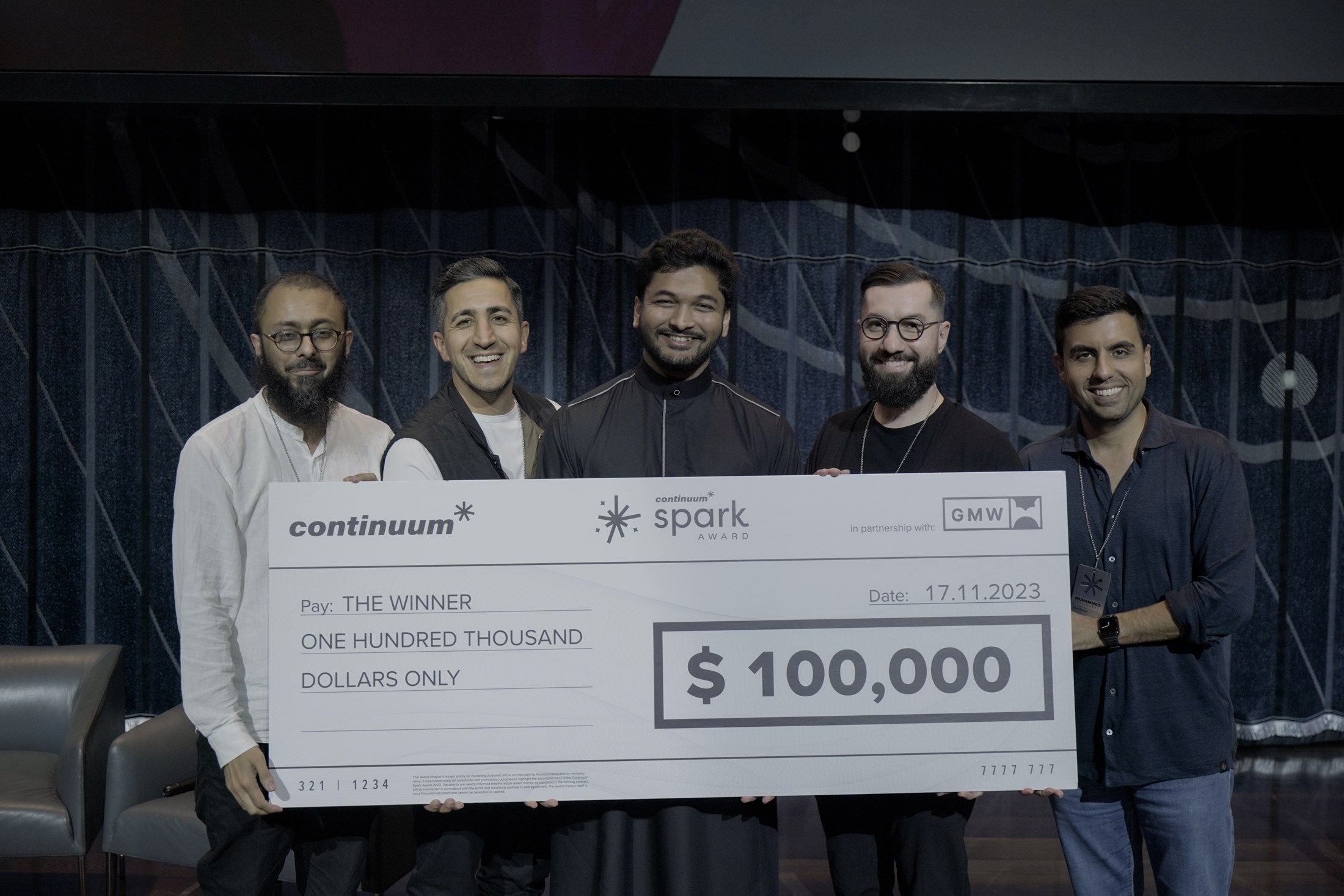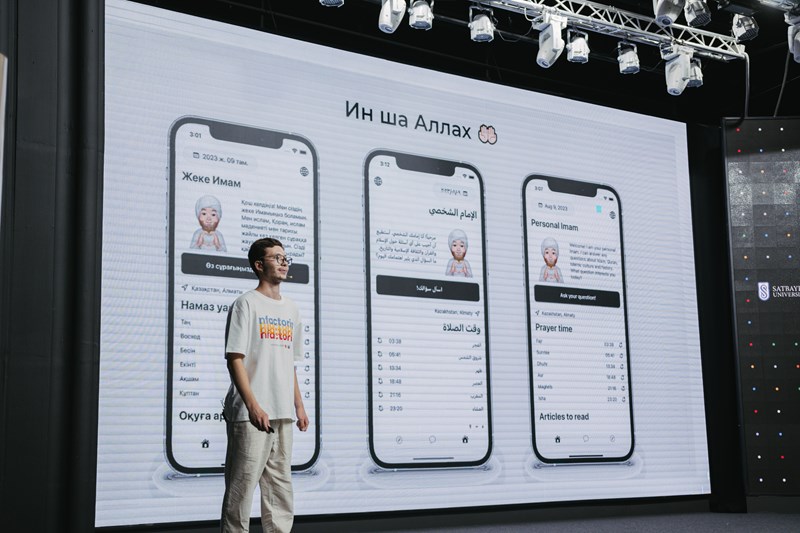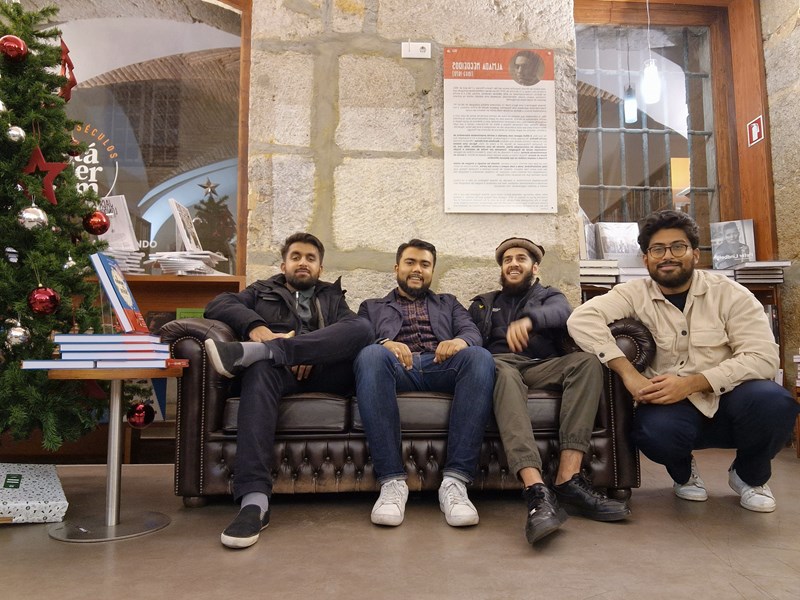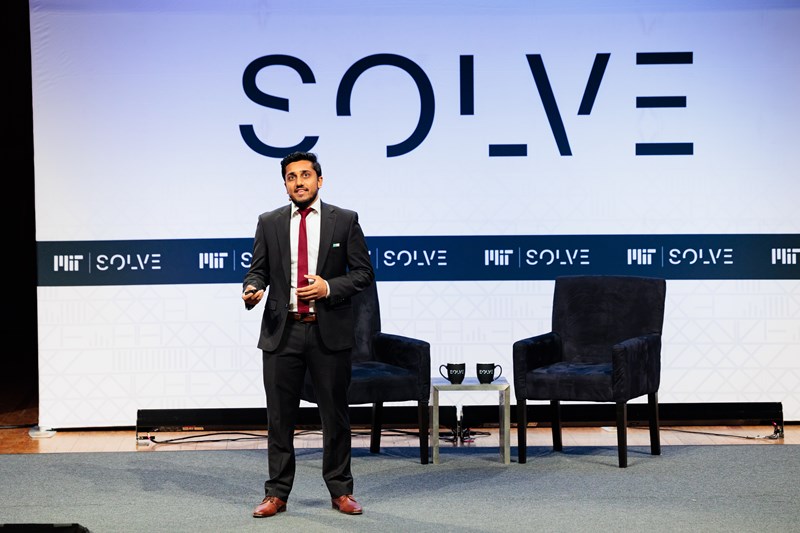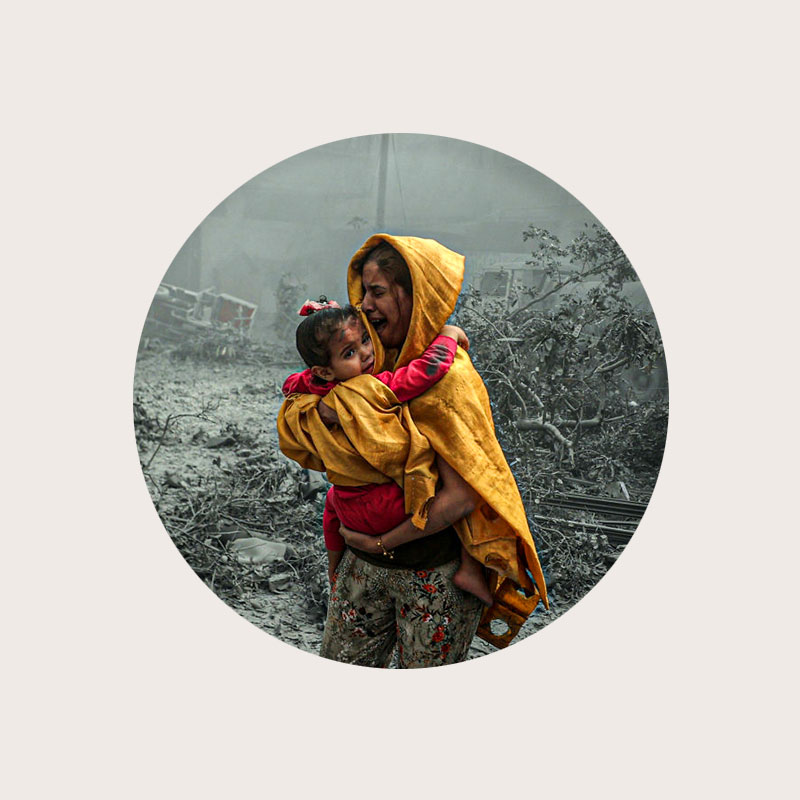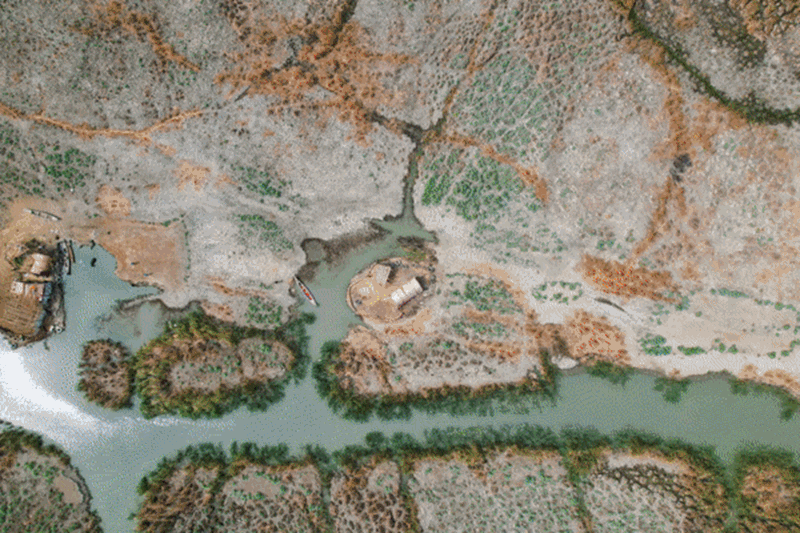Ruh Care, an online directory of Muslim mental health professionals created for people seeking Islamically-aligned therapy, came first place in the inaugural Continuum Spark Award. The platform, launched in 2021 by Toronto-based Omar Khan after his own struggles with mental health during the pandemic, received a US$100k cash investment as well as $50k worth of branding and consulting support.
Ruh Care was selected from a group of eight finalists following a shark tank-style final hosted by the Qatar Foundation at GMW Doha, an international networking event run by the Global Muslim Workation Network, a subsidiary of LaunchGood.
In second place was Deen Developers, a UK-based nonprofit that brings together Muslim technology-for-good entrepreneurs. And third, was ImamAI from Kazakhstan, a generative AI mobile application providing users on-the-go information about Islam and faith practices. The people’s choice award went to humanitarian translation tool, Tarjimly.
“Winning this award is a significant milestone for us,” Khan, 26, told Philanthropy Age. “Every dollar we’re receiving is an Amanah (trust) for us. We are excited to scale our impact even further.”
Khan, a former IBM product manager, who co-founded Ruh Care, a social enterprise, with Humeyra Nur Celebi, a Turkish psychologist, said the plan was to use part of the prize money to develop IoS and Android applications for the platform. They would also scale up their marketing ahead of launching into five US states with large populations of under-served Muslims, he said.

